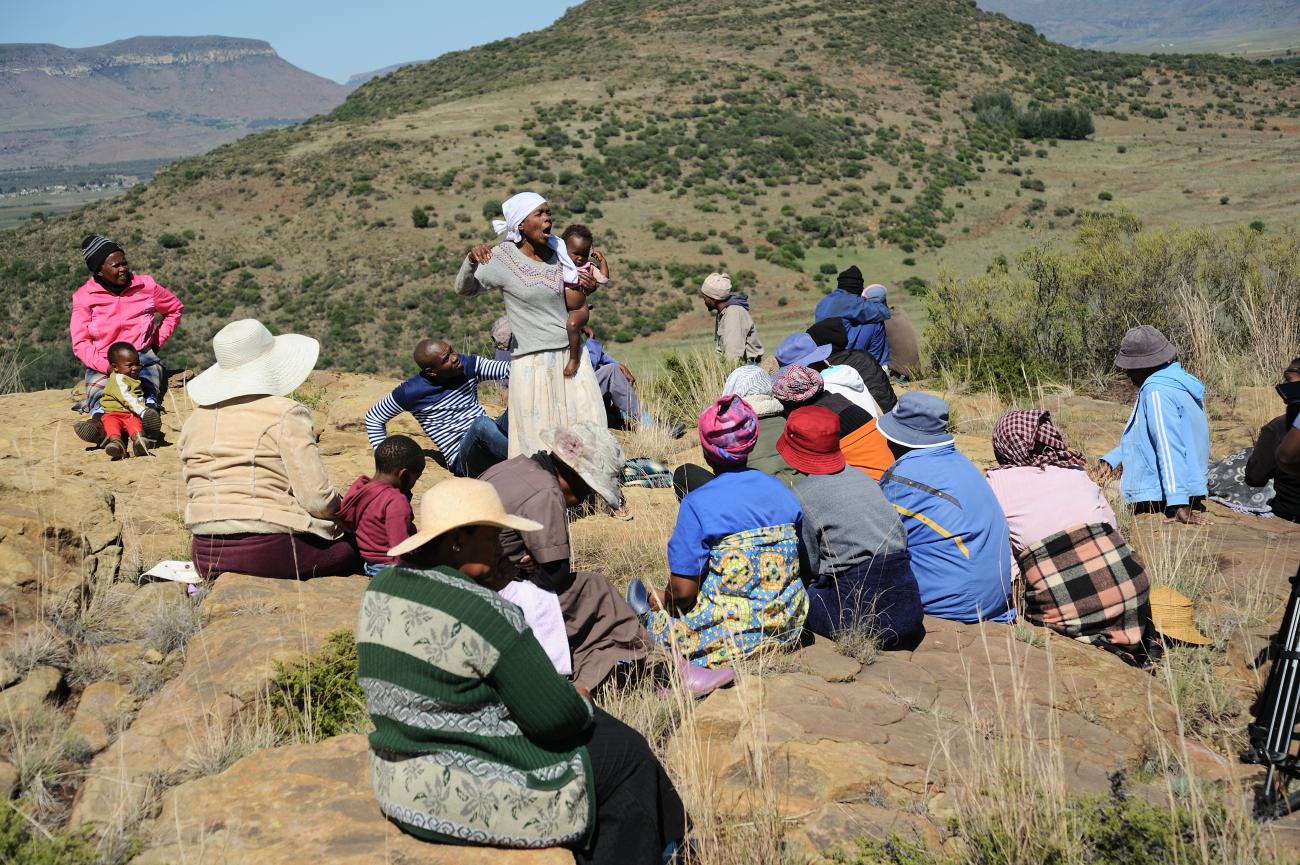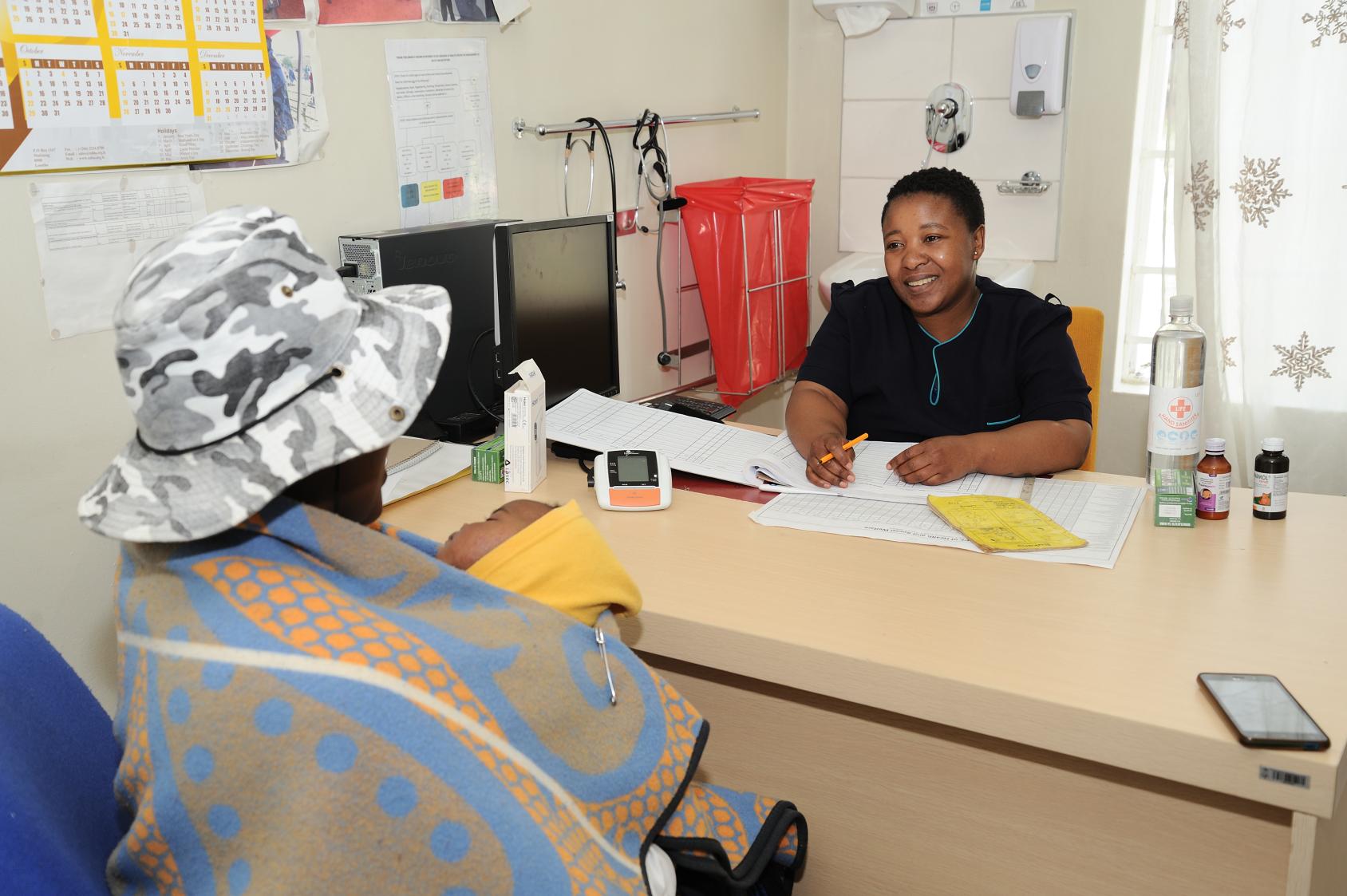“I Look at My Daughter and Know We Were Saved”

In the village of Ha Sechele in Lesotho, Likobiso Posholi faced a terrifying moment. Complications during labor, and the nearest hospital hours away, could have meant tragedy. But thanks to Lesotho’s new emergency transport system—the M-Mama programme—she was rushed to care and delivered safely by emergency C-section.
“Without that help, I don’t know if either of us would be here today,” she says.
Her story is one of thousands behind a remarkable shift. Lesotho has reduced maternal mortality by 54 per cent since 2009—a sign not just of stronger health services, but of a national commitment to gender equality, one that directly advances the 2030 Agenda for Sustainable Development, especially Sustainable Development Goal 5 (SDG 5) on gender equality.
That transformation is being driven by targeted investments in women’s health, education, and legal protection—backed by coordinated United Nations support under the leadership of the UN Resident Coordinator (RC). The efforts were supported by the Government of Sweden under the 2gether 4 SRHR programme, a joint UN Regional Programme that brings together the combined efforts of UNAIDS, UN Population Fund (UNFPA), UN Children's Fund (UNICEF), and the World Health Organization (WHO), to improve the sexual and reproductive health and rights (SRHR) of all people in Eastern and Southern Africa.
Through joint work by WHO, UNFPA, UNICEF and others, Lesotho has expanded skilled birth attendance to 89 per cent, trained emergency staff, and implemented a national Maternal and Newborn Health Acceleration Plan aligned with global goals.

But progress goes beyond health.
In 2024, Lesotho submitted its long-overdue report to the Committee on the Elimination of Discrimination Against Women (CEDAW)—pending since 2015. This milestone, achieved with UN technical assistance, signaled new momentum in eliminating legal barriers and expanding protections for women and girls. The Government also moved to revise long-standing reservations on laws around marriage, inheritance, and protection from violence.
UN support has also helped turn policy into practice:
- A new Prevention and Management of Learner Pregnancy Policy, developed with UN agencies, now ensures pregnant learners can stay in school and return after childbirth.
- New referral systems connect schools to health and social services.
- Comprehensive sexuality education—supported by UNFPA and the Joint United Nations Programme on HIV/AIDS (UNAIDS)—has been institutionalized in schools, equipping adolescents with knowledge about their health, rights, and HIV prevention.
“This progress isn’t accidental,” says UN Resident Coordinator Amanda Khozi Mukwashi. “Our role as the UN is to support the Government and people of Lesotho to go further, faster, and deeper in ensuring every woman and girl can live free from violence, access quality education and health care, and participate equally in society.”
Lesotho captured this progress in its Voluntary National Review (VNR) presented at the High-Level Political Forum (HLPF)—a global platform for countries to report on their progress toward the 2030 Agenda. The VNR doesn’t just showcase better statistics; it illustrates how system-wide reforms, local leadership, and global cooperation can drive real change.
As countries rally around the Pact for the Future, the new compact to accelerate action across key global priorities, Lesotho stands out. It reminds the world that delivering on gender equality isn’t just about numbers—it’s about the lives of women like Likobiso, who no longer have to face childbirth—or life—alone.
To read more about the UN’s work in Lesotho visit lesotho.un.org.













